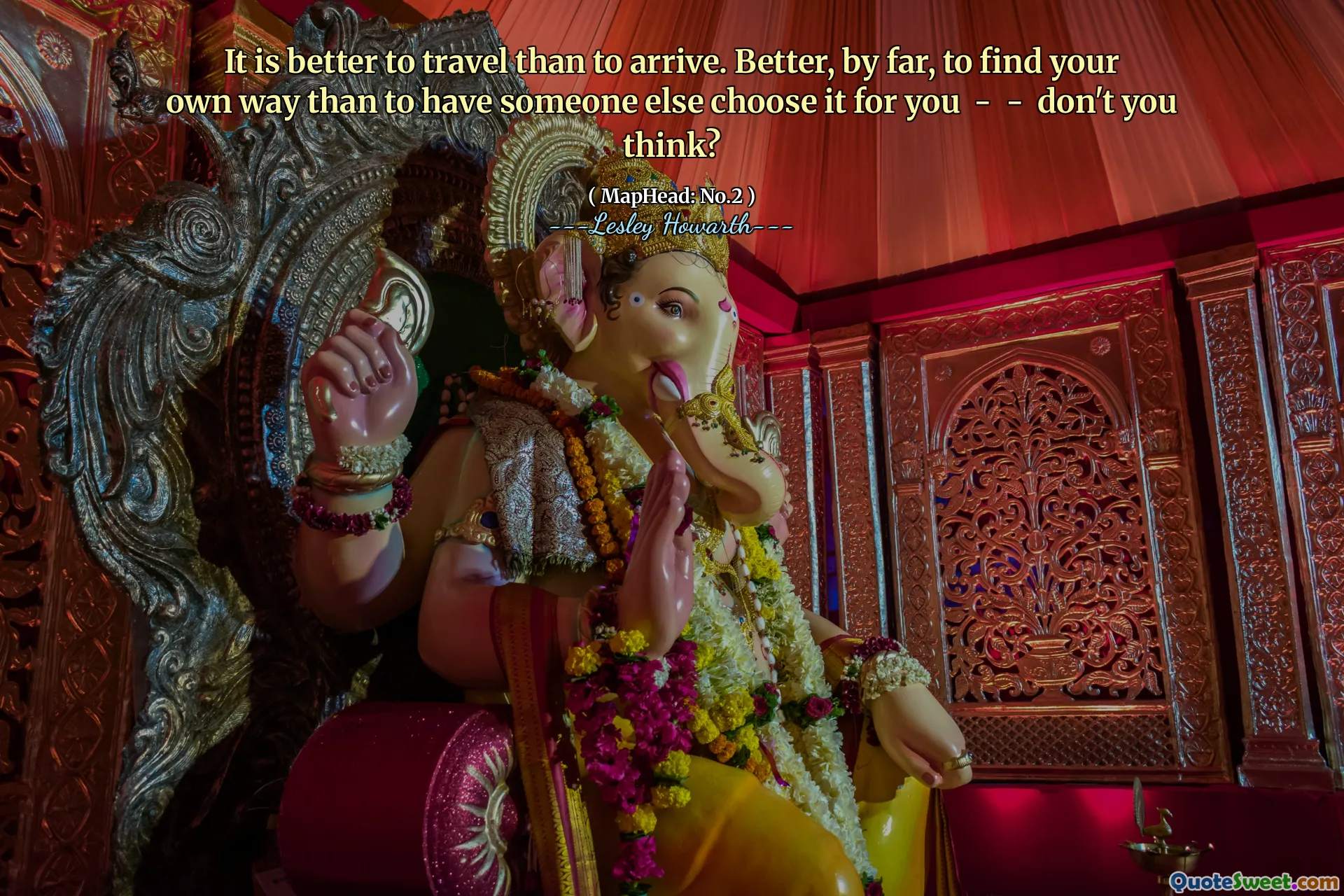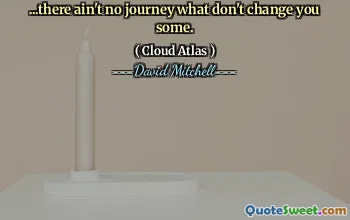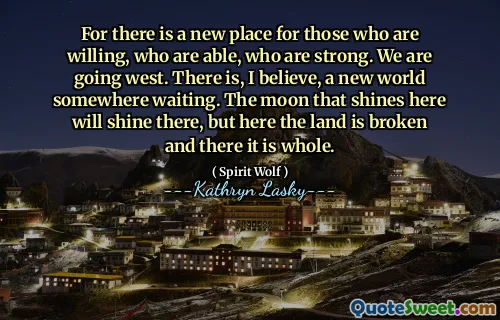
It is better to travel than to arrive. Better, by far, to find your own way than to have someone else choose it for you - - don't you think?
This quote encapsulates a profound perspective on the value of the journey over the destination. It emphasizes the intrinsic rewards found in the process of exploration, discovery, and self-directed growth, rather than merely achieving an endpoint. The suggestion that "it is better to travel than to arrive" challenges the common societal tendency to focus exclusively on goals, achievements, and outcomes, reminding us that the experiences and lessons gained along the way often hold richer meaning and lasting impact.
Moreover, the quote underscores autonomy in the journey of life. Finding one's own way is portrayed not just as preferable but as fundamentally better than allowing others to dictate our path. This highlights the significance of personal agency, authenticity, and the courage to trust one’s intuition and choices. It speaks against passive conformity and encourages active, courageous exploration and self-definition. By asserting that forging one’s own path is preferable, the quote invites readers to embrace uncertainty and the personal growth that accompanies self-guided exploration.
In a broader sense, this reflection resonates with the philosophy that life’s value is embedded not solely in achievements or destinations but in moments, choices, and learning processes that shape identity and understanding. It encourages mindfulness about the present and an appreciation for personal growth over external validation. The concluding rhetorical question, "don't you think?" welcomes dialogue and introspection, engaging the reader to internalize and reflect upon these ideas. Overall, the quote serves as a gentle yet impactful reminder to cherish our unique journeys and remain true to ourselves throughout.
The book reference, "MapHead: No.2," and author Lesley Howarth lend literary context that suggests the quote could be part of a broader narrative about navigation—both literal and metaphorical—in life. This connection enriches the quote's layer of meaning regarding mapping one’s path.


